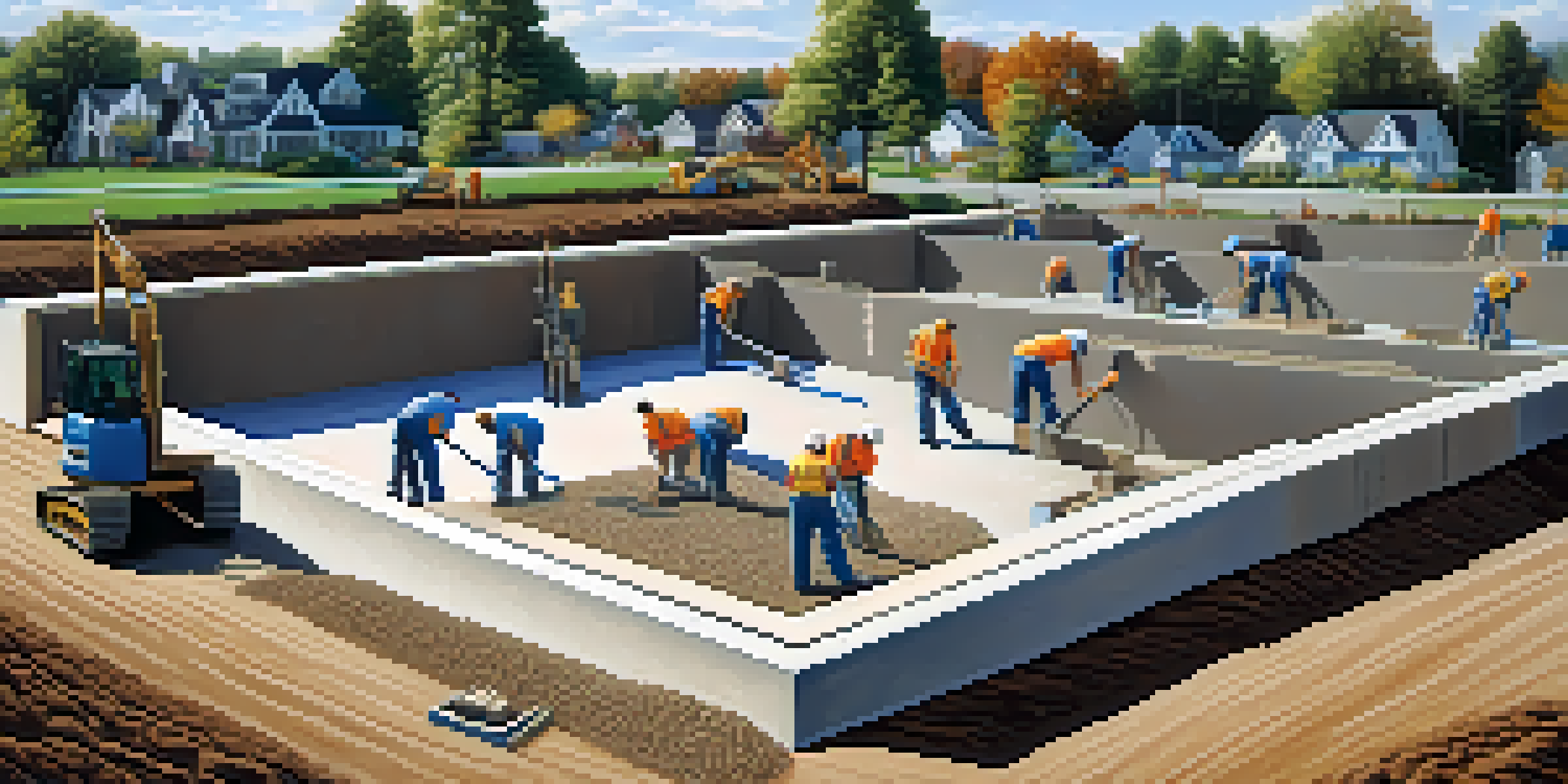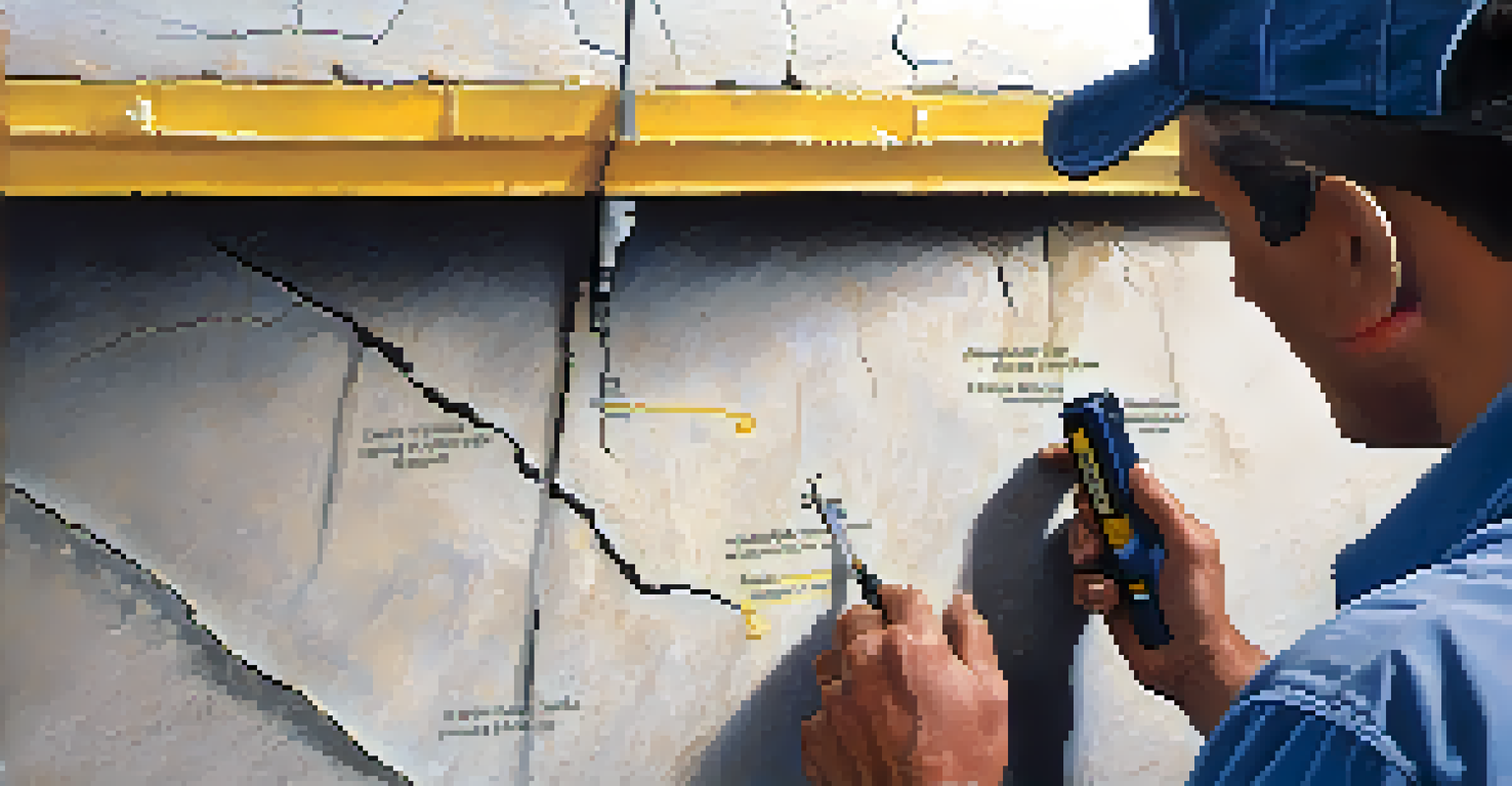The Value of Upgrading Your Home's Foundation

Why a Strong Foundation is Crucial for Your Home
The foundation of your home is its backbone, providing stability and support. A strong foundation ensures that your home remains level and can handle the weight of the structure above it. When the foundation is compromised, it can lead to serious issues, like cracks in walls and uneven floors, which can be both unsafe and costly to repair.
A good foundation is the key to a good life.
Think of your home as a tree; the foundation is its roots. Without strong roots, a tree cannot grow tall and healthy. Similarly, your home needs a solid foundation to thrive and withstand the elements, protecting your investment and your family’s safety.
Upgrading your foundation not only enhances your home's structural integrity but also contributes to its overall value. Prospective buyers often look for homes with solid foundations, so investing in this area can pay off in the long run.
Signs That Your Foundation Needs Upgrading
Identifying the signs of a failing foundation can save you from more significant problems down the road. Look for cracks in walls, especially around windows and doors, as well as uneven floors that might indicate shifting. Also, pay attention to doors that stick or won't close properly; these can be red flags.

Additionally, if you notice water pooling around your home or basement leaks, it might be a sign that your foundation is struggling to manage moisture. These issues can lead to mold and other serious problems, so addressing them swiftly is essential.
Foundation's Role in Home Stability
A strong foundation is essential for your home’s stability, preventing issues like cracks and uneven floors.
By recognizing these signs early on, you can take proactive steps to upgrade your foundation, ultimately saving you time and money while preserving your home’s value.
The Benefits of Upgrading Your Foundation
Upgrading your foundation can lead to improved structural integrity, which translates to safety and peace of mind for you and your family. A solid foundation minimizes the risk of costly repairs in the future, allowing you to focus on other home improvement projects.
The strength of a building is in its foundation.
Moreover, an upgraded foundation enhances energy efficiency. A well-maintained foundation helps regulate the temperature inside your home, reducing heating and cooling costs. This improvement not only benefits your wallet but also contributes to a more comfortable living environment.
Finally, a strong foundation can significantly boost your home’s market value. If you ever decide to sell, prospective buyers will appreciate the assurance of a solid foundation, making your property more attractive in a competitive market.
Different Types of Foundation Upgrades
There are several options when it comes to upgrading your home's foundation. A common upgrade is slab jacking, which involves lifting sunken concrete slabs back to their original position with a special mixture. This method is effective for stabilizing and leveling foundations without extensive excavation.
Another option is installing piers, which involves placing supports beneath the foundation to distribute weight more evenly. This method is particularly beneficial for homes in areas prone to soil erosion or shifting.
Signs Your Foundation Needs Attention
Cracks, sticking doors, and water pooling are key indicators that your foundation may need upgrading.
Lastly, some homeowners may choose to replace their entire foundation with a more modern, durable material. While this can be a more significant investment, it often results in a long-term solution that greatly enhances the home’s stability.
How to Choose the Right Foundation Contractor
Choosing the right contractor for your foundation upgrade is crucial for a successful outcome. Start by researching local contractors with experience in foundation work, and always check their credentials and customer reviews. A reputable contractor should be licensed, insured, and have a solid track record.
Don't hesitate to ask for references from previous clients. Speaking directly with past customers can provide valuable insights into the contractor's workmanship and reliability. Additionally, look for contractors who offer warranties on their work, which can give you added peace of mind.
Lastly, obtain multiple estimates to compare prices and services. This not only helps you find the best deal but also allows you to gauge the contractor’s professionalism and approach to your project.
Cost Considerations for Foundation Upgrades
The cost of upgrading your foundation can vary widely depending on several factors, including the type of upgrade, the size of your home, and the extent of the work required. On average, homeowners can expect to spend anywhere from a few thousand to tens of thousands of dollars for significant upgrades.
While it may seem like a hefty investment upfront, consider the long-term savings associated with a strong foundation. By preventing serious structural issues, you’re likely to save money on repairs down the line. Plus, an upgraded foundation can potentially increase your home’s market value.
Investing in Foundation Upgrades
Upgrading your foundation not only enhances safety and energy efficiency but can also increase your home’s market value.
It's essential to budget wisely and consider financing options if needed. Many contractors offer payment plans, and some local governments may have programs to assist homeowners with foundation repairs, making this vital upgrade more accessible.
Maintaining Your Foundation After Upgrades
Once you've upgraded your foundation, regular maintenance is key to ensuring its longevity. Start by keeping gutters and downspouts clear to prevent water from pooling around the foundation. Proper drainage is essential for avoiding future issues.
Additionally, inspect your foundation periodically for signs of wear and tear. Look for cracks or shifts and address any issues promptly to prevent them from escalating. If you notice any changes, reach out to a foundation specialist for an evaluation.

Finally, consider landscaping around your home to direct water away from the foundation. Simple changes, like sloping the ground away from the house, can significantly reduce moisture-related issues and help maintain the integrity of your upgraded foundation.